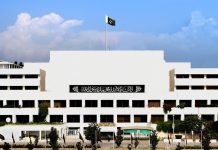SEOUL: US Secretary of Defense Mark Esper pressed South Korea on Friday to pay more for the cost of stationing US troops in the country and to maintain an intelligence-sharing pact with its other Asian ally, Japan, that Seoul is about to let lapse.
Speaking after a high-level defense policy meeting with his South Korean counterpart, Jeong Kyeong-doo, Esper also said the two countries have to be flexible with their joint military drills to support diplomatic efforts to end North Korea’s nuclear program. But he stopped short of announcing any new reduction in exercises that North Korea has sharply condemned.
North Korea said on Thursday it had turned down a U.S. offer for new talks ahead of a year-end deadline Pyongyang has set for Washington to show more flexibility in negotiations.
As uncertainty hangs over the troubled peace push, the United States and South Korea are simultaneously scrambling to clinch an agreement in the coming weeks to cover next year’s costs of maintaining a 28,500-strong U.S. military presence aimed at deterring North Korea. South Korea, Esper said, “is a wealthy country and could and should pay more” for the U.S. military deployment.
“It is crucial that we conclude the (defense pact) … with increased burden sharing by the Republic of Korea before the end of the year,” Esper told a news conference.
Jeong said he and Esper shared the view that the cost-sharing pact being negotiated should be fair and mutually agreeable, but it was unclear if they shared any sense of what a fair amount might be.
A South Korean lawmaker said last week that U.S. officials demanded up to $5 billion a year, more than five times what Seoul agreed to pay this year under a one-year deal. U.S. President Donald Trump has rattled South Korea with his insistence it take on a greater contribution for the deterrence against North Korea.
A survey by the government-affiliated Korea Institute for National Unification released last week showed 96% of South Koreans were against paying more for the U.S. military presence.–Agencies



